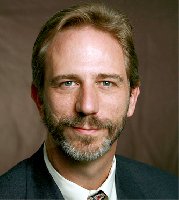By David Gushee
Associated Baptist Press
March 29, 2010
http://www.abpnews.com/content/view/4997/9/
 |
(ABP) -- The child-sexual-abuse scandal in the Roman Catholic Church has resurfaced with a vengeance, with events in Ireland, Germany, and the United States having been the subjects of recent reporting. A particularly nauseating case involves a Wisconsin priest who is accused of molesting at least one young boy in the confessional, perhaps the holiest and most trusted space in Catholic life. As one who grew up Catholic, I know exactly what that sacred space is supposed to mean.
Today I write as a Baptist ethicist and minister with no desire to condemn the Catholic Church. Indeed, I want to suggest in this column that three of the four main factors that have fueled this scandal are just as relevant in Baptist or other Protestant settings.
First, this scandal has been fueled by imbalances of power between laity and clergy, and especially between children and adults. When a child is sexually abused by the most-trusted authority figure in a church, he or she begins from a position of total powerlessness. He or she starts off with the voicelessness of every child in a world where the rules are set by adults. He or she lives in a context in which adults are far more likely to be believed than children. And if he or she does somehow develop the capacity to articulate the abuse, the complaint must eventually be made to the very institution led by the child’s abuser. The victim will need a significant infusion of power arrayed in solidarity with him or her from other adults -- such as parents, lay leaders in the congregation, lawyers, or the civil authorities -- to start leveling the imbalance of power.
Second, this scandal has been fueled by secrecy within the power structure of the church. It seems that the instinct to keep child-sex-abuse allegations secret has been a near-universal tendency among Catholic officials. The same is often true of such allegations in Protestant churches. There are various reasons for this, beginning with the prevention of public scandal or the disastrous fallout within a local congregation even if it never hits the papers. Churches do not want their dirty laundry aired in public.
Undoubtedly there are many families who would prefer that the shameful abuse of their son or daughter not be publicly revealed. Certainly the accused minister has every interest in keeping the allegations quiet. Due process or other legal concerns undoubtedly play a part. And there is always the chance that an allegation is false. It all adds up to patterns of secrecy that may shield an abuser for years or decades.
A third factor clearly evident in church handling of sexual abuse allegations is the dominance of the sin-forgiveness paradigm rather than the crime-punishment approach. Nowadays it should be totally clear that anyone who encounters a credible allegation of child abuse is obligated to report it to the civil authorities. The paradigm is that child abuse is a crime that must be prevented and punished by the state, and that the protection of children from abuse is the highest priority. Certainly those in the helping professions are now taught this, and I teach it in ministerial ethics. We are given no latitude here.
But often the churches implicitly operate from a different paradigm, so deeply rooted in our scriptures, in which wrong acts are treated as sins and the proper response is confession, forgiveness and restoration. There is plenty of evidence in the Catholic scandals of the predominance of the sin-forgiveness paradigm, with disastrous results in many cases. It is easy to pretend to be sorry and to promise to never do it again, if that is what the authorities need to hear. The abuser might even believe it and fully intend to keep such promises, but be so sick or embedded in sinful habits that he is unable to do so.
Where Catholic and Protestant sexual misconduct tends to differ relates to the Catholic requirement that the priesthood be held only by men vowed to celibacy. Certainly there are Protestant ministers who abuse children. But more often Protestant ministers fall prey to heterosexual misconduct, as when married male ministers have affairs with women in their congregations. This violates chastity (not celibacy), and is still a form of clergy sexual abuse because it involves the abuse of clergy power.
Sometimes Catholic priests violate their own vows through such heterosexual affairs. But more often it seems that the sexual misconduct is either homosexual or involves the abuse of children. And the Catholic Church may be reluctant to end the ministry of such priests because there are these days so few men willing to enter the priesthood. The twisting of our God-given-yet-fallen sexuality is a fact of our broken world. But the Catholic Church has to ask whether its ancient requirement that priests be celibate men should be reconsidered, for the sake of the church’s most vulnerable -- its children.
Any original material on these pages is copyright © BishopAccountability.org 2004. Reproduce freely with attribution.